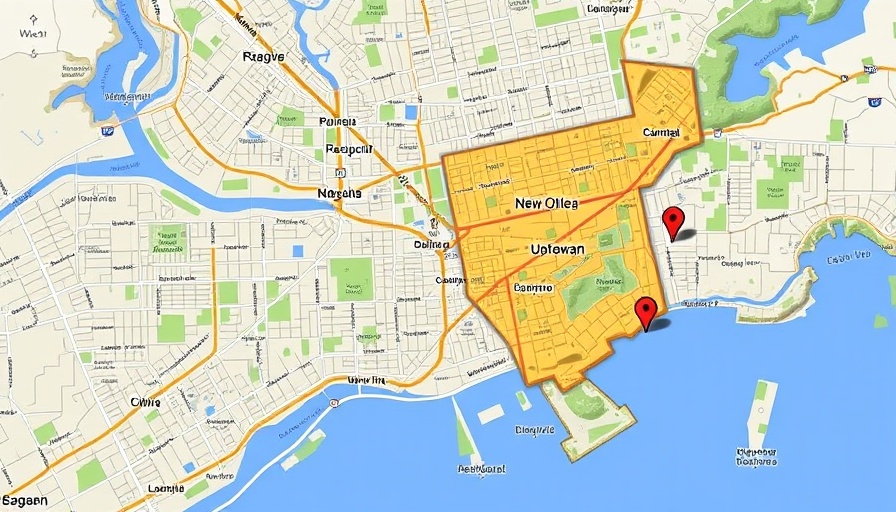
Understanding the Water Main Break in Uptown New Orleans
Recently, a significant water main break hit the heart of Uptown New Orleans, leading to localized flooding and a subsequent boil water advisory issued by the Sewerage and Water Board of New Orleans. The incident affected numerous residents, leaving them concerned about water safety and supply.
Progress Made: The Boil Water Advisory Lifted
As of now, after considerable repair advancements and successful water testing, the advisory for many areas within Uptown has been partially lifted. Residents are greeted with the welcome news that they can safely use their water once again—a stark contrast to the uncertainty that loomed after Saturday's break.
What Caused the Water Main Break?
Water main breaks can occur for various reasons, including age-related deterioration, ground movement, and changes in pressure. With New Orleans's unique geological conditions and aging infrastructure, the mechanics behind such a break are multifaceted and require ongoing attention and management.
The Community’s Reaction and Resilience
The flooding due to the water main break forced residents to adapt quickly. Photos flooded social media, showing streets turned rivers and homes threatened by water intrusion. However, the community rallied, showcasing resilience and a unified spirit in the face of inconvenience and anxiety. Local organizations stepped up to provide assistance to those in distress, highlighting the significance of neighborhood support during crises.
Lessons Learned: Future Preparedness
The incident serves as a reminder of the critical importance of city infrastructure upkeep. City planners and utility companies now face challenges in securing funding and resources to upgrade systems that have not kept pace with growth and climate changes. Citizens in the area express concerns that addressing these root issues is vital to prevent future incidents.
The Long-Term Impact on Water Safety Protocols
The implications of this water main break extend well beyond immediate impacts. The testing protocols for water quality and safety will undoubtedly be scrutinized, and improvements are anticipated to alleviate public concerns. Local officials will likely implement more comprehensive public safety communications to keep residents updated during similar occurrences in the future.
Common Misconceptions about Water Safety
Many community members might not fully understand the importance of adhering to boil water advisories. During such advisories, it's crucial to boil water for at least one minute before consumption to eliminate harmful pathogens. Lack of public awareness can pose significant health risks, particularly among vulnerable groups like the elderly.
Advice for Residents: Ensuring Water Safety
During situations like these, residents are advised to keep emergency supplies, including bottled water and hygiene products, readily available. It's prudent to stay informed about local weather conditions and municipal announcements regarding water safety. Following local news outlets and social media channels can provide real-time updates, ensuring that communities remain connected during crises.
What’s Next for the Sewerage and Water Board?
The Sewerage and Water Board faces mounting pressure to enhance service reliability and address infrastructure vulnerabilities. As it looks to rebuild trust and improve service, transparency in communication will be paramount. Engaging directly with residents about ongoing projects and sought-after improvements can help mend the gap between the city and its citizens.
In conclusion, the water main break in Uptown New Orleans has shed light on critical infrastructure issues and the importance of community resilience. As residents now return to normalcy, continuing education and awareness will play essential roles in safeguarding public health and safety. Remember, staying informed is our best line of defense against future occurrences.
Stay connected with your local news and community resources to be prepared for any unexpected challenges!
 Add Row
Add Row  Add
Add 



Write A Comment